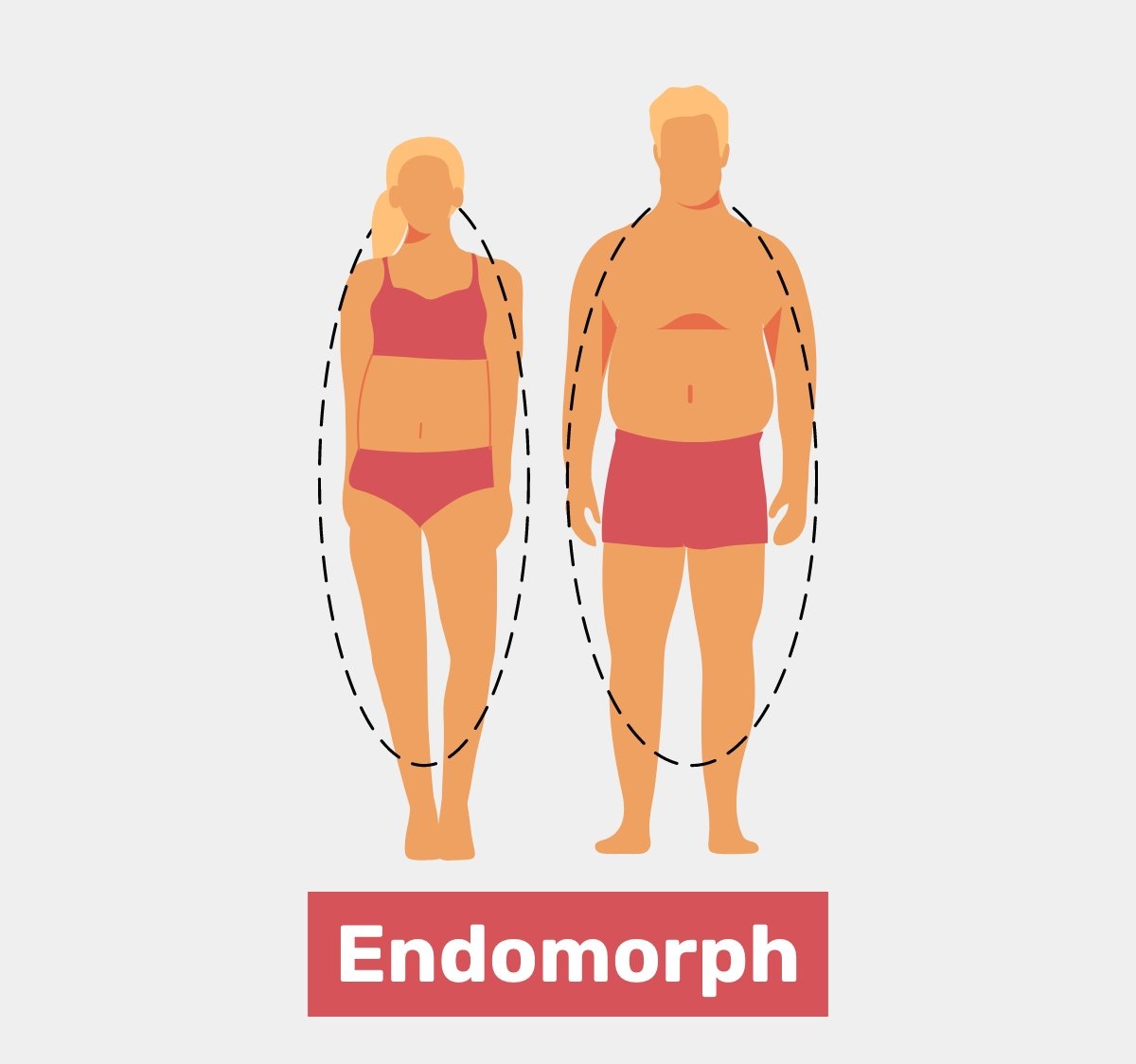Endomorph describes a body type that is characterized by a shorter stature with a wide frame and a higher body fat composition.
Typically, endomorphs can easily put on muscle mass, but they also have a slower metabolism, higher fat percentage, and have more difficulty with weight loss.
Therefore, it's important for people with an endomorph body type to consume meals that are high in protein (to help with muscle gains), and to decrease intake of high calories from processed or fatty foods (to help with body toning).

Body type characteristics
Characteristics of an endomorph body type include:
- Shorter stature or height
- Wider or rounder frame
- Higher percentage of body fat
- Women tend to have a curvier, pear-shaped body
People with an endomorph body type can easily put on muscle mass, but have an overall slower metabolism, higher tendency for fat accumulation and more difficulty with weight loss. Read more about the different body types and how they differ.
Endomorph diet
Endomorphs should adopt a balanced diet that contains low calories but has generous amounts of protein to help with weight loss and muscle gain. See this list of high protein foods that you can incorporate into your daily diet.
Meal plan for weight loss
A diet plan targeted for weight loss should contain less calories. A low-carb diet is a good option for endomorphs, as it helps to ward off hunger for longer periods (which will help with weight loss).
With a low-carb diet, it is important to prioritize foods with healthy fats, lean proteins, fruits and vegetables and whole wheat grains. Thermogenic foods, like cacao and green tea, will also boost metabolism and help with weight loss. Check-out other detox drinks that can help to stimulate weight loss.
The following table contains a 3-day plan of a low-carb diet for an endomorph body type:
This plan is merely an example. The quantities of food presented can vary depending on personal preferences and individual health. Therefore, it is best to consult a dietitian to develop a diet plan that is personalized to you and your goals.
Meal plan for muscle gain
A diet that targets muscle gain for an endomorph body type should prioritize the consumption of natural foods like fruits, vegetables and whole grains. You should consume about 1.6g of lean protein for every kilogram (or 2.2lb) of body weight. This protein should be evenly distributed at every meal. Learn more about diets for muscle gain.
The following table shows a 3-day plan for endomorph body types looking to increase muscle mass. You can also check out the diet and exercise suggestions for ectomorph and mesomorph body types.
This plan is merely an example. The quantities of food presented can vary depending on personal preferences and individual health. Therefore, it is best to consult a dietitian to develop a diet plan that is personalized to you and your goals.
It's important to note that factors like healthy sleep habits, regular physical activity and adequate hydration (e.g. 1.5 L or about 6 cups of water per day) also play a role in gaining muscle. Check out other tips for muscle gains that you can combine with this diet.
Also recommended: 8 Best Supplements for Muscle Growth tuasaude.com/en/best-supplements-for-muscle-growthFoods that an endomorph should avoid
Whether your objective is to lose weight or to gain muscle mass, endomorph body types should avoid the consumption of some foods that will prevent them from reaching their goals. Foods to avoid include:
- Foods with high sugar content, like candy, ice cream, cookies or cake
- Processed foods, like ready-made sauces, fast food, or instant noodles
- Refined grains, like white bread, white pasta or white rice
- Foods with high fat content, like fried fat content, pizza, chips, bacon or salami
It is also important to avoid alcohol (e.g. beer, sparkling drinks, wine), especially at meals, as these drinks contain high calories. You should also avoid high calorie snacks.
